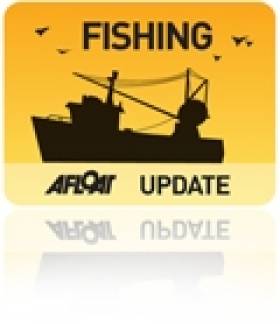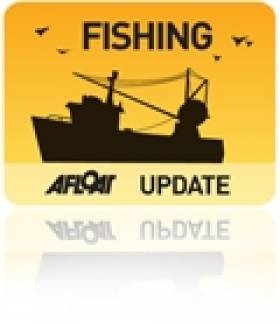Displaying items by tag: Jason Whooley
Jason Whooley Resigns as Bord Iascaigh Mhara CEO
#BIM – Jason Whooley has resigned as CEO of Bord Iascaigh Mhara. The Board of Directors of Bord Iascaigh Mhara (BIM), the Irish Sea Fisheries Board, today announced the resignation of its Chief Executive Officer effective from the 30 August 2014. In a statement published on its website the board praised Mr. Whooley for the wide-ranging positive changes he has made to the organisation during his tenure and the valuable contribution he has made towards the development of the Irish Seafood Sector.
Kieran Calnan, Chairman of the Board stated; 'Since joining BIM, Jason has led the refocusing of the agency into the modern semi-state company that we see today. On behalf of the Board, I would like to sincerely thank Jason for his work in BIM. I know that he is leaving BIM with a legacy of change and increased ambition. The BIM strategy to which he has contributed enormously remains our key focus and BIM will continue to lead the industry forward to take advantage of the global opportunity for Irish seafood. I wish him every success in his future career'
Mr. Whooley was full of praise for the staff of BIM and the industry; 'The staff in BIM have an incredible knowledge of the industry; they are dedicated and passionate about what they do and this, together with innovative thinking makes BIM a great organisation. I would like to personally thank all of the people in BIM and in our industry for their support during my term as CEO. I have enjoyed my time in BIM and I know the organisation will continue to build on its strong tradition and deliver further growth in the seafood sector'
BIM Decries 'Scare Tactics', Urges Support for Fish Farming
#FISHING - Bord Iascaigh Mhara (BIM) has called on environmental campaigners opposed to changes in the current fish farm licensing system to "get behind Ireland's aquaculture industry".
In a letter to The Irish Times yesterday, the fisheries board wrote in response to Tony Lowes of Friends of the Irish Environment, whose own letter to the paper on Tuesday lambasted the IFA's claims of an "inexplicable delay" in the State's processing of licence applications for new fish farms off the west coast.
BIM chief executive Jason Whooley said it was "refreshing" to read Lowes "expressing confidence in and support for the current Irish aquaculture licensing system", which is "both rigorous and science-based... involves a high level of public consultation and is fully transparent."
However, Whooley hit out at what he described as Lowes' "scare tactics" and "spurious" attempts "to mislead by comparing the output from a salmon farm with human sewage".
Lowes had written that salmon farming "is a highly polluting industry", and that discharge of nitrogen and phosphorous from aquaculture facilities "can fuel toxic algae blooms, which have cost the shellfish industry dear".
Whooley countered that argument, stating that "the harmful elements from human sewage, such as E.coli, cryptosporidium or viruses, are simply not present in the excretions from cold-blooded creatures, such as the Atlantic salmon."
He also urged Lowes to "get behind Ireland’s aquaculture industry and support it as a sustainable and valuable source", adding that "increasing the output of farmed Irish organic-certified salmon represents a great opportunity to create a large number of sustainable jobs in Ireland’s coastal communities."

























































